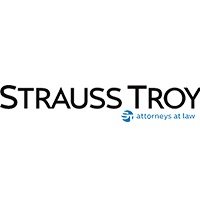Best FDA Law Lawyers in Kentucky
Share your needs with us, get contacted by law firms.
Free. Takes 2 min.
Or refine your search by selecting a city:
List of the best lawyers in Kentucky, United States
About FDA Law in Kentucky, United States
FDA Law refers to the body of federal regulations and legal principles that govern food, drugs, medical devices, cosmetics, tobacco, and related products in the United States. While the U.S. Food and Drug Administration (FDA) oversees compliance at the federal level, each state, including Kentucky, may have additional requirements or enforcement mechanisms that relate to these products and industries. In Kentucky, FDA Law is particularly important for manufacturers, distributors, pharmacies, healthcare providers, food producers, and others involved in regulated sectors.
Why You May Need a Lawyer
Legal issues involving FDA Law can be complex due to overlapping federal and state regulations. Common situations where you may need legal help include:
- Defending against enforcement actions, inspections, or warning letters from the FDA or state agencies
- Navigating the process of FDA approval or registration for new products
- Responding to product recalls or alleged product defects
- Ensuring facility compliance with both federal FDA and Kentucky state requirements
- Handling labeling, advertising, or marketing disputes involving regulated products
- Dealing with import and export issues for food, drugs, or medical supplies
- Protecting intellectual property involved in FDA-regulated products
- Litigating injury or damage claims related to FDA-regulated products
A lawyer experienced in FDA Law can help you understand your obligations, respond appropriately to investigations, and advocate for your business or personal interests.
Local Laws Overview
Kentucky adopts and enforces several layers of laws and regulations on top of federal FDA regulations. For example:
- The Kentucky Food, Drug, and Cosmetic Act closely mirrors the federal Food, Drug, and Cosmetic Act, but with some differences in licensing, inspections, and enforcement.
- The Kentucky Cabinet for Health and Family Services, specifically the Department for Public Health and the Office of Inspector General, has authority to regulate and inspect food and drug establishments.
- Kentucky requires state licensing for certain businesses, such as food manufacturing plants, wholesale drug distributors, pharmacies, and medical device suppliers.
- Kentucky also enforces additional food safety regulations, especially for dairy, meat, EGGS, and agricultural products, which can intersect with FDA oversight.
- Local health departments may conduct routine inspections and issue fines or warnings separate from federal action.
It is important for businesses or individuals dealing with regulated products in Kentucky to understand both federal and state requirements.
Frequently Asked Questions
What is the FDA, and does it enforce state laws in Kentucky?
The FDA is a federal agency that enforces national regulations. It does not directly enforce Kentucky state laws, but state agencies may adopt and enforce similar regulations. Sometimes, state and federal authorities work together on enforcement actions.
Do I need state and federal approval for manufacturing drugs or food in Kentucky?
Generally, yes. You must comply with both federal FDA requirements and obtain state licenses or approvals for most manufacturing or distribution operations in Kentucky.
Who inspects food or drug facilities in Kentucky?
Both the FDA and state agencies, such as the Kentucky Department for Public Health or the Office of Inspector General, may conduct inspections, sometimes jointly.
What should I do if I receive an FDA warning letter or state violation notice?
Do not ignore the letter. Consult an attorney familiar with FDA Law as soon as possible to evaluate your response and ensure compliance to avoid penalties or further actions.
What are the penalties for violating FDA or Kentucky food and drug laws?
Penalties can include fines, license suspension or revocation, seizure of products, mandatory recalls, and in severe cases, criminal prosecution.
Are CBD products regulated in Kentucky?
CBD and other hemp-derived products are subject to specific state rules as well as FDA regulations, especially regarding labeling, marketing, and allowable claims.
How does Kentucky regulate medical devices?
Medical device manufacturers and distributors must comply with FDA requirements and obtain any necessary Kentucky state registrations or meet state-specific operational standards.
What role do local health departments play in FDA Law enforcement?
Local health departments in Kentucky often inspect restaurants, grocery stores, and certain facilities to enforce state and local food safety laws that may overlap with FDA requirements.
How can a lawyer help with a product recall?
An attorney can guide you through the recall process, help manage communications with regulators, review corrective actions, and work to minimize legal liability or reputational damage.
Can I challenge a regulatory action taken by the FDA or Kentucky authorities?
Yes. Administrative hearings, appeals, and sometimes court actions are available, but the process can be complex and requires experienced legal counsel.
Additional Resources
If you need more information or immediate assistance regarding FDA Law in Kentucky, consider these resources:
- The U.S. Food and Drug Administration (regulatory information, recalls, and guidance documents)
- Kentucky Cabinet for Health and Family Services (licensing, inspections, complaint filings)
- Kentucky Department for Public Health (food safety, drug regulation)
- Kentucky Bar Association (referrals for attorneys with FDA Law experience)
- Louisville Bar Association and other local legal organizations
Next Steps
If you are facing a legal issue related to FDA Law in Kentucky, start by collecting all relevant documents, such as notices from regulators, inspection reports, licenses, and correspondence. Consult with an attorney who has specific experience in FDA Law and Kentucky state regulations. Legal consultations can help you understand your rights, assess risks, and develop a strategy for compliance or defense. Reach out to local or state agencies for additional guidance, but avoid responding to official inquiries or enforcement actions without legal counsel if possible.
Taking timely action is important to protect your business or personal interests and ensure compliance with all applicable laws and regulations.
Lawzana helps you find the best lawyers and law firms in Kentucky through a curated and pre-screened list of qualified legal professionals. Our platform offers rankings and detailed profiles of attorneys and law firms, allowing you to compare based on practice areas, including FDA Law, experience, and client feedback.
Each profile includes a description of the firm's areas of practice, client reviews, team members and partners, year of establishment, spoken languages, office locations, contact information, social media presence, and any published articles or resources. Most firms on our platform speak English and are experienced in both local and international legal matters.
Get a quote from top-rated law firms in Kentucky, United States — quickly, securely, and without unnecessary hassle.
Disclaimer:
The information provided on this page is for general informational purposes only and does not constitute legal advice. While we strive to ensure the accuracy and relevance of the content, legal information may change over time, and interpretations of the law can vary. You should always consult with a qualified legal professional for advice specific to your situation.
We disclaim all liability for actions taken or not taken based on the content of this page. If you believe any information is incorrect or outdated, please contact us, and we will review and update it where appropriate.
Browse fda law law firms by city in Kentucky
Refine your search by selecting a city.














